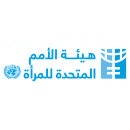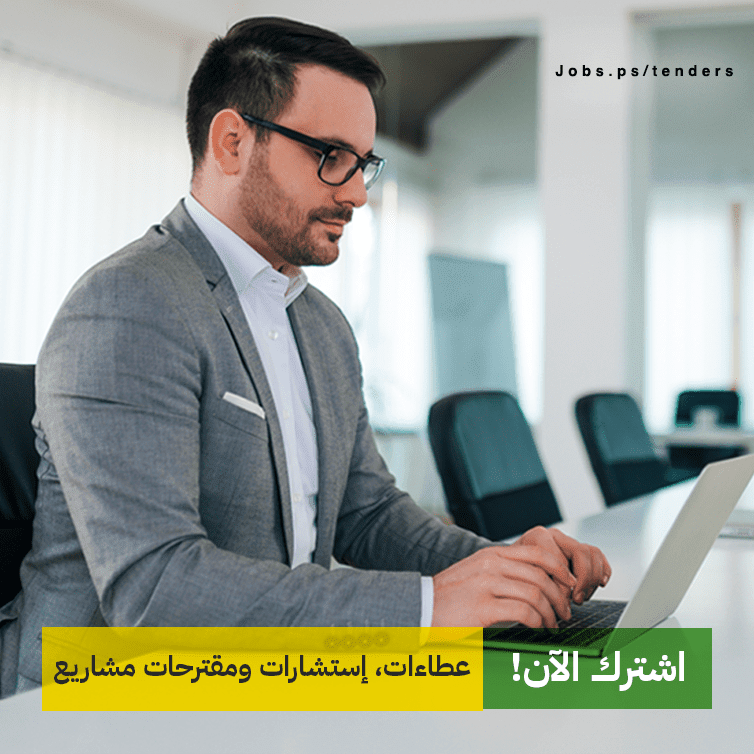Capacity Building Training Consultant
Title: Capacity Building Training Consultant on the Amended Case Conference Manual and the National Referral System.
Background
UN Women (UNW), grounded in the vision of equality enshrined in the Charter of the United Nations, works for the elimination of discrimination against women and girls; the empowerment of women; and the achievement of equality between women and men as partners and beneficiaries of development, human rights, humanitarian action and peace and security. Placing women’s rights at the centre of all its efforts, the UN Women leads and coordinates the United Nations system efforts to ensure that commitments on gender equality and gender mainstreaming translate into action throughout the world. It provides strong and coherent leadership in support of Member States’ priorities and efforts, building effective partnerships with civil society and other relevant actors.
UN Women’s triple mandate, along with its global network and deep policy and programming expertise, continues to endow the Entity with a unique capacity to: (i) support Member States to strengthen global norms and standards for gender equality and women’s empowerment, and mainstream gender perspectives in other thematic areas; (ii) promote coordination and coherence across the UN system to enhance accountability and results for gender equality and women’s empowerment; and (iii) undertake operational activities to support Member States, upon their request, in translating global norms and standards into legislation, policies and strategies at country level.
UN Women plays an innovative and catalytic role in the State of Palestine since its inception in 1997 (as UNIFEM). In line with the national priorities, the work of UN Women for the period 2023-2025 is aligned with three of the Palestine United Nations Sustainable Development Cooperation Framework’s (UNSDCF) outcomes:
- Palestinians have greater access to economic opportunities that are inclusive, resilient, and sustainable, including decent employment and livelihoods opportunities in an empowered private sector.
- Palestinians, including the most vulnerable, have equal access to sustainable, inclusive, gender responsive and quality social services, social protection, and affordable utilities.
- Palestinian governance institutions, processes, and mechanisms at all levels are more democratic, rights-based, inclusive, and accountable.
Its three-year Strategic Note supports the efforts to achieve measurable results in country in terms of four UN Women global Strategic Plan impacts (2022-2025): (SP Impact 1). Governance and participation in public life; (SP Impact 2). Women’s Economic Empowerment; (SP Impact 3). Ending Violence Against Women and Girls and; SP Impact 4. Women peace and security, Humanitarian & Disaster Risk Reduction.
In line with the Palestinian Government’s commitment to achieve gender equality and combat Violence Against Women (VAW), and in full partnership with the Justice, Security and Social Sectors, UN Women within its joint programme with UNDP and UNICEF- “ Reinforcing equal access to justice for all Palestinians - SAWASYA III” is supporting the justice, security and social institutions to mainstream gender into their plans, procedures and policies, and establish/ provide gender responsive services to women victims and survivors of violence, and women in conflict with the law.
During the second phase of its joint rule of law programme, "Sawasya II," UN Women supported the Ministry of Social Development (MoSD) in amending the Case Conference Manual in line with the rights of women with disabilities. Capitalizing on these efforts, and based on consultations with partner institutions within the justice, security and social sectors, particularly the main actors in the case conference phases- including the MoSD , the Palestinian Civil Police (PCP) and Sharia court, it was agreed to invest in and strengthen the capacities of the police officers, the MoSD counselors and sharia prosecution in the management of cases of women with disabilities within the National referral System (NRS)- with specific focus on the case conference phase.
Hence, UN Women, under its joint rule of law programme "Sawasya III," plans to recruit an experienced trainer to provide capacity-building training to MoSD social counselors (women’s protection and disability counselors), police officers from the Family and Juvenile Protection Department (FJPD) at the PCP and sharia prosecution on gender responsive and disability -inclusive management of cases of women with disabilities who are victims and survivors of violence. The goal is to equip these professionals with the required knowledge and skills needed to effectively implement and manage the case conference phase.
Objectives:
The consultancy has the below main objectives:
- To develop a training material on key concepts, principles, good practices, and considerations when providing services to women with disabilities victims and survivors of violence, in addition to the key roles and responsibilities that the concerned parties play within the NRS- with focus on the case conference phase, and
- To deliver 8 days capacity building training to the MoSD’s social counselors, police officers from (FJPD) at the PCP and sharia prosecution
- To foster collaboration, coordination and cooperation between the different service providers.
- To support service providers to effectively handle and respond to complex cases, particularly those involving multiple types of violence, such as: domestic violence, discrimination, neglect and others, while, ensuring a holistic approach to each case.
The consultant will be reporting to Sawasya III Programme Specialist and will be supported by the Prosecution Analyst, in addition to the Finance Associate who will be the point of contact on the contract and payment issues.
Duties and Responsibilities:
Developing the inception report:
- Meet with UN Women, the MoSD, the FJPD at the PCP and sharia court focal points to discuss the assignment and its objectives.
- Develop the inception report, including the methodology, the deliverables and time frame and share with UN Women for review, inputs and approval.
Development of a training plan and a training material in addition to delivering 6 days training on the amended case conference manual and the NRS:
- Review the amended case conference manual and the NRS.
- Prepare a training plan, the related materials and pre and post assessments and share with UN Women for review and approval.
- Conduct 8 days capacity building training on the responsive and effective application of the amended case conference manual and the NRS.
- Ensure a participatory approach and interactive methods, throughout all phases of work.
Reporting on the assignment:
Develop a final narrative report that includes a description of the content of the capacity building training, assignment’s methodology, main findings, observations, challenges and recommendations for future related programming. The report should include also findings of pre and post assessments. The participants’ list, training material, presentations and the pre and post assessments’ form should be annexed.
Deliverables:
The consultancy has three main deliverables:
Deliverable
Expected completion time (due day)
Approved inception report
Ten days after the signing of the contract
A successful completion of the 8 days capacity building training; along with an approved final narrative report
Three months after the signing of the contract
Consultant’s Workplace and Official Travel:
The consultancy requires field visits to partner institutions, including the Ministry of Social Development (MoSD), the Palestinian Civil Police (PCP) and the sharia court, in addition to possible movements between cities – if needed. Additionally, the training will be conducted across three governorates—Central, North, and South.
جميع الحقوق محفوظة لموقع جوبس.
Competencies:
Core Values:
- Respect for Diversity
- Integrity
- Professionalism
Core Competencies:
- Awareness and Sensitivity Regarding Gender Issues
- Accountability
- Creative Problem Solving
- Effective Communication
- Inclusive Collaboration
- Stakeholder Engagement
- Leading by Example
Please visit this link for more information on UN Women’s Core Values and Competencies:
https://www.unwomen.org/en/about-us/employment/application-process#_Values
FUNCTIONAL COMPETENCIES:
- Sound knowledge of VAW, women’s rights and women’s access to justice
- Very strong background on gender and women with disabilities rights
- Very strong knowledge of the national referral system (NRS) and case conference manual
- Sound knowledge of service providers within security and justice chain
- Strong expertise in conducting capacity building trainings to social and security sector personnel; (previous assignment with MOSD and/or PCP and/or trainings on rights of women with disabilities, referral system and case conference is a great asset).
- Ability to manage time and meet tight deadlines.
- Consistently approaches work with energy and a positive, constructive attitude.
- Demonstrates strong oral and written communication skills.
- Remains calm, in control and good humored even under pressure.
- Proven networking, organizational and communication skills.
Required Skills and Experience:
Education and Certification:
- A master’s degree in Gender Studies, Law, or Sociology or any other related field. A BA degree in the requested fields is accepted with 2 additional years of experience in lieu of master’s degree.
Experience:
- At least 3 years of professional working experience in the field of gender, violence against women, protection, women’s rights and women access to Justice.
- At least 3 years’ experience in the field of women with disabilities- preferably in areas related to the protection of women with disabilities victims and survivors of violence.
- Strong background on procedures followed within the NRS and managing case conferences is a great asset
- A minimum of 3 years previous experience in developing and delivering capacity building interventions, including training and workshops.
- Previous experience with the justice, or security or social sectors is a great asset.
- Previous experience with the UN or international organizations is an asset.
- A sample of a previously developed training programme and training material
The candidate has to share a sample of a previously developed training programme and training material on the management of cases of women survivors of violence and/or NRS – preferably in areas related to women with disabilities.
Languages:
Fluency in Arabic and professional knowledge of English.
How to Apply:
- Personal CV or P11 (P11 can be downloaded from: https://www.unwomen.org/sites/default/files/Headquarters/Attachments/Sections/About%20Us/Employment/UN-Women-P11-Personal-History-Form.doc )
- Managers may ask (ad hoc) for any other materials relevant to pre-assessing the relevance of their experience, such as reports, presentations, publications, campaigns, or other materials.









